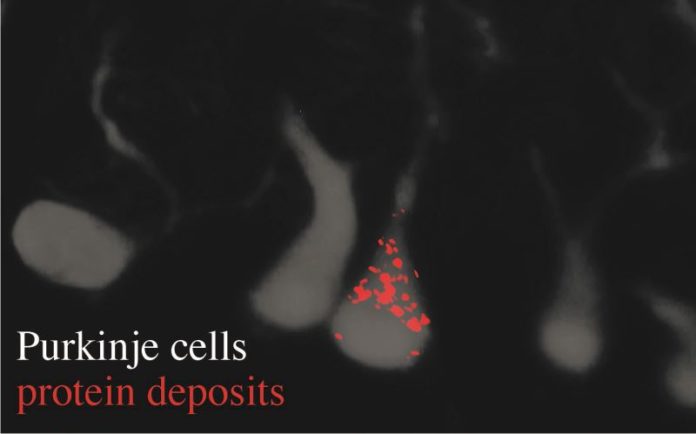Study Identifies Gene That Reigns in Neurons, Can Prevent Protein Aggregates
Editing domains of aminoacyl tRNA synthetases correct the tRNA charging errors to maintain translational fidelity. A mutation in this editing domain of alanyl tRNA synthetase (AlaRS) in Aarssti mutant animal models results in an increase in the production of serine-mischarged tRNAAla and the subsequent degeneration of the cerebellar Purkinje cells.
And now, using positional cloning, scientists have identified Ankrd16, a gene that acts epistatically with the Aarssti mutation to attenuate neurodegeneration. Without normal levels of Ankrd16, the nerve cells in the cerebellum, were discovered to incorrectly activate the amino acid serine, thereby leading to improperly incorporated proteins causing protein aggregation.
University of California San Diego Professor Susan Ackerman and her team emphasized this origin of brain disease over a decade ago. Now, delving deeper, the team has identified this gene, Ankrd16, that prevents the protein aggregates they initially detected.
“Simplified, you may think of Ankrd16 as acting like a sponge or a ‘failsafe’ that captures incorrectly activated serine and prevents this amino acid from being improperly incorporated into proteins, which is particularly helpful when the ability of nerve cells to proofread and correct mistakes declines,” said Ackerman, the Stephen
W. Kuffler Chair in Biology, who also holds positions in the UC San Diego School of Medicine and the Howard Hughes Medical Institute.The degree of Ankrd16 is usually low in Purkinje cells as already stated above- which makes those neurons vulnerable to proofreading defects. Elevating the amount of Ankrd16 protects these cells from dying, while eliminating Ankrd16 from different neurons in mice using a proofreading lack caused widespread buildup of abnormal proteins and finally neuronal death.
The investigators explain Ankrd16 as “…a new layer of the machinery essential for preventing severe pathologies that arise from defects in proofreading.”
The investigators note that just a couple of modifier genes of disease mutations like Ankrd16 have been identified and a modifier-based mechanism for understanding the underlying pathology of neurodegenerative diseases might be a promising path to comprehend disease growth.
































